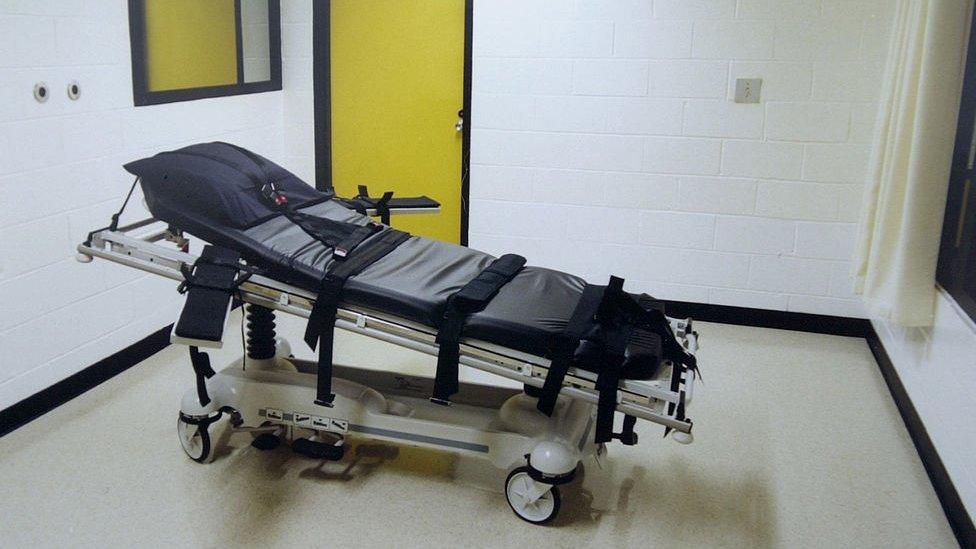Georgia death row inmate seeks execution by firing squad
- Published

Ledford stabbed his 73-year-old neighbour to death in January 1992
A death row inmate in the US state of Georgia is applying to be executed by firing squad on the grounds that lethal injection would be too painful for him.
J W Ledford Jr has been taking a drug for nerve pain which his lawyers say may change his brain chemistry and expose him to "unconstitutional pain".
Ledford was convicted of the 1992 murder of his neighbour.
A judge dismissed his lawsuit on Friday but the lawyers say they will appeal. The execution is scheduled for Tuesday.
The lawyers said in court papers that Ledford had taken the drug gabapentin for more than a decade.
They cite experts who say long-term exposure to gabapentin alters the brain in such a way that the lethal injection drug pentobarbital cannot be relied upon to make him unconscious and devoid of sensation or feeling.
"There is a substantial risk that Mr Ledford will be aware and in agony as the pentobarbital attacks his respiratory system, depriving his brain, heart, and lungs of oxygen as he drowns in his own saliva," the court papers said.
They said this would violate Ledford's rights under the Eighth Amendment of the US Constitution, which prohibits "cruel and unusual punishment".
However, the US Supreme Court requires that an alternative method of execution be offered.
'Unworkable standard'
Only three states allow for firing squad as an alternative to lethal injection - Mississippi, Oklahoma and Utah.
Georgian law allows no alternative. Other methods of lethal injection are no longer available as manufacturers of many drugs have prohibited their use for capital punishment.
This has led Ledford's lawyers to argue that his "dilemma illustrates why [the Supreme Court] standard is unworkable".
Lawyers for the state of Georgia said there was "no substantial risk" of severe pain and questioned the timing of the lawsuit.
"Plaintiff has waited until the eve of his execution to suddenly claim that he has been treated for pain with medication that will allegedly interfere with his execution," they said in court papers.
"If plaintiff really thought the firing squad was a reasonable alternative he could have alerted the state years, instead of five days, before his execution."
- Published9 December 2016

- Published26 January 2017

- Published21 December 2016

- Published15 April 2017
